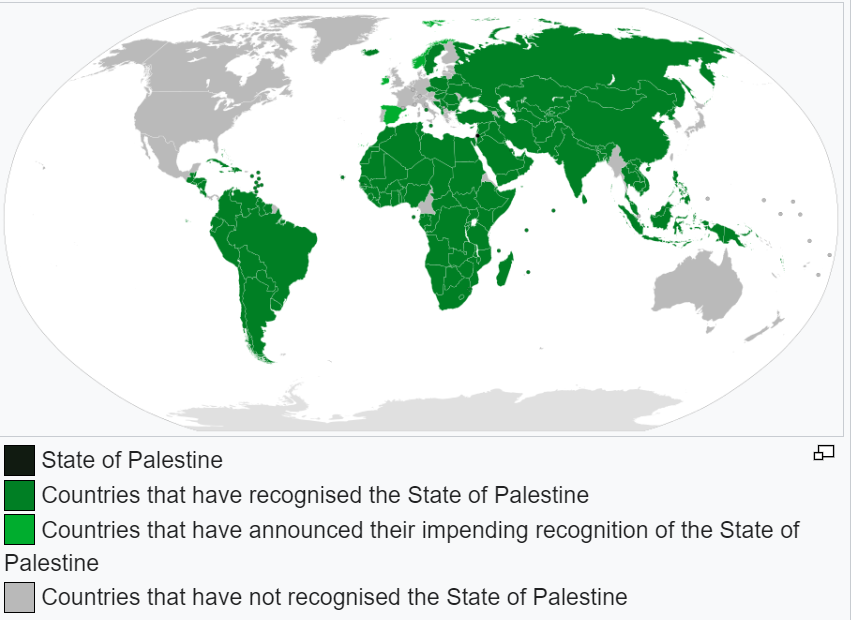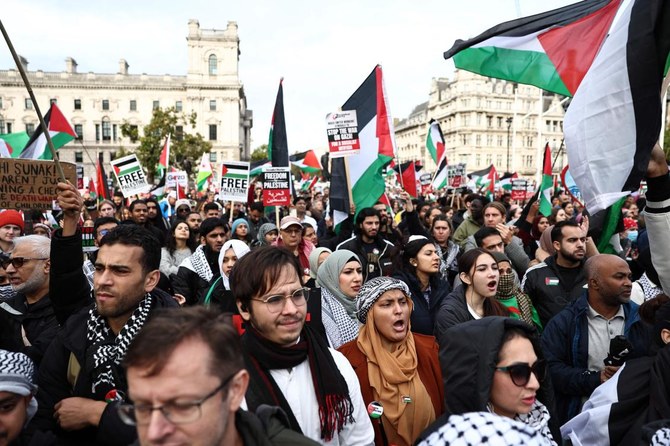As of May 2024, 143 of the 193 UN members have recognized the State of Palestine as a sovereign nation. Since November 2012, it has been a state that observes the UN General Assembly without membership.
In a historic but mainly symbolic move, Norway, Ireland, and Spain announced that they would recognize a Palestinian state, further isolating Israel after more than seven months of a bloody conflict with Hamas in Gaza. Israel retracted its ambassadors from all three nations and condemned the decisions.
As a confirmation of their long-standing quest for statehood in east Jerusalem, the West Bank, and the Gaza Strip—territories that Israel seized and continues to control—Palestinian officials hailed the announcements.
Even though 140 nations, or more than two-thirds of the UN, have recognized the existence of a Palestinian state, Wednesday’s wave of declarations may gain traction at a time when even Israel’s closest allies are criticizing the country for its actions in Gaza.
The International Day of Solidarity with the Palestinian People was observed by the UN on November 29, or around that date, last year. The second Friday of December is always marked as Palestinian Day, in compliance with the demands made by the General Assembly in resolutions 32/40 B from 2 December 1977, 34/65 D from 12 December 1979, and subsequent resolutions approved under the agenda item “Question of Palestine.”
Palestine: Origins and Development
Following the Palestine Liberation Organization’s (PLO) 1988 declaration of independence, the Oslo Accords of 1993 officially recognized Palestine’s independence. The agreement resulted in the creation of the Palestine Authority, which went on to rule the State of Palestine.
138 UN members recognize PLO as a distinct state, and it has established numerous diplomatic ties with nearly every nation on earth.
India, Russia, China, the Middle East, etc. are the main sources of recognition. While maintaining strong diplomatic ties with the Palestinian government, developed nations such as the United States, Canada, and other Western European nations have yet to recognize Palestine’s independence.
The nations endorsing the cause of Palestine are:

These nations can be divided into four groups.
Nations that do not acknowledge the establishment of Israel:
- States from the Arab League and nearly all of the West Asian nations are included in this group, which does not acknowledge the creation of Israel in any way.
- These nations also call for Palestine to be independent. But the UAE, Morocco, Egypt, Jordan, and so on are not among the nations.
- North Korea, Venezuela, Pakistan, and numerous other nations with a majority of Muslims are among the nations in East Asia that do not back Israel.
Nations that Support Israel and Palestine together:
- These are the nations that claim Israel is the primary cause of the current conflict while still endorsing both nations.
- These nations consist of Bahrain, UAE, Egypt, Jordan, and Turkey, among others. According to these nations, Israel is primarily to blame for abusing its superior power.
Nations that accept Israel’s and Palestine’s independence while denouncing both:
These nations embrace both Israel and Palestine and seek a compromise.
- Regarding the hostility displayed by both nations, they remain impartial. While acknowledging Palestine, these nations are unable to ignore Israel because the US government backs the country and its growing economic clout. India, China, Russia, and other nations are included in this list.
- India had been a staunch supporter of the Palestinian cause before 1992, but following that year, good diplomatic relations were established between Israel and India, which paved the way for cooperation. India’s largest supplier of weapons is Israel. India did not publicly support Palestine at the UNGA for this reason. India has criticized Hamas for its frequent attacks on Israel, even though it supports Palestine.
- Israel’s actions were deemed reactionary by India. This also applies to China, which advocates for bilateral discussions between the two nations.
- Russia carefully balances the countries and attempts to maintain a regular stance.
Nations endorsing the both two nations:
These nations back both Israel and Palestine, but they insist that the conflict must be settled between the two sides alone, without intervention from a third party.
- The United States of America is one of Israel’s main allies. It cannot ignore the Palestinian cause, though, because of internal politics. Additionally, it maintains diplomatic ties with Palestine.
- Nine EU states acknowledge Palestine, but most do not publicly back the country. The EU gives Palestine the most money possible. Several nations have also pledged their support for Palestine, including France, Portugal, Spain, and others.
- The United States of America is one of Israel’s main allies. It cannot ignore the Palestinian cause, though, because of internal politics. Additionally, it maintains diplomatic ties with Palestine.
- Nine EU states acknowledge Palestine, but most do not publicly back the country. The EU gives Palestine the most money possible. Several nations have also pledged their support for Palestine, including France, Portugal, Spain, and others.


Comments are closed, but trackbacks and pingbacks are open.